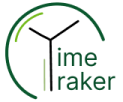How to Improve Time Management Skills at Work

Time management is one of the most essential skills that can significantly impact your work performance. Many professionals struggle to manage their time efficiently, which leads to missed deadlines, increased stress, and reduced productivity. Understanding how to improve time management skills can greatly enhance your effectiveness at work, allowing you to focus better on your tasks and meet your goals. Whether you’re looking for time management techniques or exploring how time and time management affect your daily routine, learning these strategies can help you achieve more in less time.
In this article, we’ll discuss proven strategies, tools like Time Traker, and case studies that show how better time management can transform your productivity.
Why Time Management Skills Are Important
Now let us discuss why knowing how to plan the time of the day more effectively is so important before we plunge into means of its enhancement. According to the conducted studies successful time management results in enhanced work performance, reduced stress and increased job satisfaction. Lack of time management, on the other hand, leads to such problems as untimely submission, low quality of a work done, as well as fatigue.
People often try to relate time management to the ability to accomplish more within a shorter period of time only. It is about management, motivation and time setting, goal line and priority, as well as knowing when to refuse. It also enables one to work more on important tasks since time is well-utilized, and leads to improved work-life balance.
Pain Point: Poor Time Management Leads to Stress and Low Performance
You in an office for eight hours and you feel like nothing has been accomplished. You could have been busy, but were you getting things done? This is a typical situation which many people, who suffer from weak time management skills, experience. They combine functions, delay or lose focus often hence producing low output, frequent stress.
According to a survey conducted by Harvard Business Review, people who use their time effectively produce 25 percent more than those who don’t. This figure illustrates why time management is related directly to productivity and work performance.e.
How to Improve Time Management Skills
1. Prioritize Your Tasks

The first step in how to improve time management skills is learning how to prioritize. Not all tasks are of equal importance, and some can be delayed or delegated. Use the Eisenhower Matrix to separate your tasks into four categories: urgent and important, not urgent but important, urgent but not important, and neither urgent nor important. This will help you focus on high-priority tasks that contribute the most to your goals.
By applying this matrix, you can allocate your time more efficiently and avoid wasting hours on low-priority activities.
2. Set Clear and Realistic Goals
One of the most powerful times management tools is the setting of goals. SMART goals involve creating particular intention that is measurable, realistic, significant, and has temporal dimension or timeframe; the use of these goals gives you a map for the day. Divide your major goals into sub tasks, which should help you complete daily tasks.
In one study done by the American Psychological Association it was discovered that workers who have goals achieve more and are more effective at their jobs compared to workers who do not set goals for themselves. This goes to show that when one has clearance targets they know how and where to plan their time.
3. Leverage Time Management Tools
One of the simplest ways to improve your time management is by using tools like Time Traker, a tool that helps you track how much time you spend on various tasks. Time Traker offers seamless QuickBooks Online integration, which is perfect for businesses that need to track billable hours, expenses, and project times effortlessly. It also allows for easy timesheet entry and offers detailed reporting features.
By using Time Traker, you can gain insights into how you’re spending your time, helping you identify areas for improvement. For example, you might discover that you’re spending too much time on meetings or low-priority tasks, which can then be addressed by setting tighter limits on these activities.
4. Learn to Delegate
Delegation is also part of the learning and teaching process of how to manage time effectively Management. There is always the desire most professionals have to micromanage their work or do it all on their own, and this causes a lot of stress. It helps to clear your daily plate by getting others to do the things that they can do better than you.
This is more important to managers who require time to make decisions and tend to strategy. That way, they can devote time to the labors that are more valuable for the overall performance of the organization. It also fosters greater teamwork and trust within teams resulting into better organizational work performance.
5. Avoid Multitasking

Contrary to popular belief, multitasking is not an effective time management technique. Studies show that multitasking reduces your efficiency and lowers the quality of your work. Instead, focus on completing one task at a time before moving on to the next. This is a much more efficient way of managing time and ensures that you give each task the attention it deserves.
The Impact of Good Time Management on Work Performance
6. Manage Your Energy, Not Just Your Time
One more, or another crucial element of the way, how to enhance the effective utilization of the time mitigate is understanding the fact that time is not the only resource that is valuable – it is the energy. Schedule your activities in a manner that you are most productive as you move through the day. Namely, it means that if, for instance, you are more energetic in the morning, do the tasks that you prioritize.
Again one of the unique encounter which I can volitionally recall is the practise of shifting my operational timetabling to match my circadian rhythm steeped up my performance. This way there were chances of doing tasks that required more energy and concentration during my most productive periods when I have a lot of energy in order to increase my work output.
7. Use Time Blocking

Time blocking means, arranging time for accomplishing certain goals and is a technique in time management. This method is particularly useful in a noisy environment to help avoid procrastination or the tendency to spend too much time attending to low priority tasks. In using this technique, you have the chance of concentrating on the kind of work that requires no interjections.
Other tools, such as Time Traker, that let you track exactly how long you worked on a particular task can produce good data for future planning. For instance, if over and over, you realize that a specific activity consumes more time than estimated, it becomes easy to plan for that.
8. Practice Continuous Improvement
lastly, time management is not something you can solve once and for all. When your work load changes, so should your time management style. The last one is always scrutinizing one’s performance and, in the process, always searching how one could do it better. Was one of the used time management techniques more effective as compared to the others? Does such a task cause repeated slippages?
For example, if you are using something like Time Traker you can compare the data from the present time with the data from the past and see if there were improvements or not.
Conclusion
To enhance time management skills is always a meaningful process which daily prescribes discipline along with proper tools. All these approaches such as prioritizing, goal setting, delegation and the use of tools such as Time Traker will help to improve your productivity and work performance.
Please bear in mind that while time management is all about doing things right, its main objectives are about doing the right things better. If you practice good time management you are likely to get more done at work and also have less stress and more satisfaction in your day to day life.
